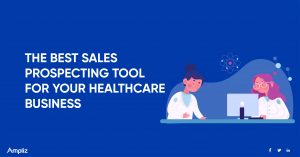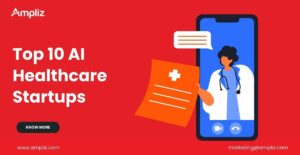Running a small business is challenging. Due to limited resources, they struggle to maintain profit margins and compete with Industry leaders. Small businesses must adopt innovative yet budget-friendly ways to ensure constant lead generation. As the world enters the new media marketing era, consider using a digital marketing glossary to keep familiar with the latest trends and technologies that can benefit your business.
Digital marketing directly affects lead generation and conversion rates, determining your business’s revenue. Without effective lead generation, the investment in other business operations goes to waste, making it challenging to keep the company afloat. Here is a guide to effectively generate more leads in your small business without breaking the bank.
Understand Your Audience
Before implementing any lead generation strategy, you must define your target audience. It lets you understand your customer’s preferences and shape your business operations accordingly. Your target audience allows you to determine which digital marketing strategies will generate the most traffic toward your business and what steps will allow you to convert that traffic into profit-generating leads.
You can determine your audience by having your past customers fill out forms regarding personal details and preferences, such as age, gender, occupation, geographical location, and interests. Or you can research competitor websites to understand what type of people they are marketing towards.
The information you collect helps create a marketing persona, which you must remember when designing any business strategy. For example, the person’s age group determines which marketing strategies to apply. For a younger audience, social media marketing is highly effective, but email marketing and SEO show better results for older age groups. Determining the marketing persona ensures that your resources are efficiently utilized and not wasted in strategies with less ROI (Return On Investment).
Digital Marketing Strategies
Digital marketing strategies are an indirect way of increasing lead generation. They help you generate more traffic to your website and create hype.
Here are some digital marketing strategies you can integrate under a tight budget.
1. Social Media Marketing
In 2022, social media apps had the most downloads. These social platforms are highly addictive because of their high-powered algorithms. The algorithm filters content to match users’ tastes and constantly keeps them engaged.
Social media platforms allow companies to utilize their algorithm to distribute paid campaigns on their products and services, which leads users to your website. Ad campaigns are inexpensive compared to traditional advertising and ensure that your ads reach the target audience directly.
To successfully use social media marketing, create multiple ad campaigns and analyze each of their performance. Continue with high ROI campaigns while eliminating ones that produce little returns. There is no one correct ad campaign for social media, so you must always keep experimenting.
Meta company allows you to use the same ad campaign across all its social platforms, saving you time and energy, but remember, each platform differs and will have different results.
2. SEO
Search engine optimization (SEO) is a cost-effective way to drive organic traffic to your website. Through SEO strategies, you can have your website appear higher on search engines enabling it to receive more clicks.
If you want your website to score high, your content must be accurate and simple to grasp. Use white space in the design and infographics, images, and videos on the website to make the content easier to follow. Additionally, ensure your website loads quickly, has internal links, and updates information frequently.
You can also improve SEO by using relevant keywords. The keywords must be unique and match your content; otherwise, there will be fierce rivalry with competitor websites. Use specialized tools like SEMRush and Google Trends to conduct keyword research to determine where your content needs improvement.
However, you will have to invest in attaining high quality backlinks to rank high in search engines too, and those can get costly. Search engines constantly update their SEO requirements to ensure your website consistently ranks high, and you keep up with search engine algorithms.
SEO for local business can be a cost-effective solution to help you with this. Create valuable, informative content that resonates with your target audience, and promote it through social media and email marketing. Building backlinks from reputable websites can also enhance your online presence. Regularly monitor your website’s performance, making adjustments as needed.
3. Retail Media Networks (RMNs)
Retail media is a form of online in-store advertising where retailers set up specific spaces on their web pages for ads and sell them to different brands to advertise their products. They target consumers at the point of purchase. RMNs work like “digital shelves,” helping brands increase their visibility as customers can learn about them on the sites they spend the most time on.
Brands and manufacturers can carry out more organized and structured campaigns because RMNs allow them access to first-party insights. This information that brands receive when customers engage with their retail media or purchase their products online, this information that brands receive helps them tailor their marketing strategies more effectively. Additionally, advertising your product on a retailer’s website can feel more relevant to a customer browsing that website.
RMNs enable you to monetize your mobile applications and sites, creating an advertising ecosystem owned and controlled by you. As a retailer, they provide you 100% of the advertising revenue. Prominent retailers like Amazon, Walmart, and Target have established RMNs, scaling up the digital advertising industry.
RMNs provide a highly personalized advertisement by targeting customers based on customers’ purchase history, browsing pattern, demographics, engagement on posts, and previously viewed ads and form a closed loop system from click to purchase. These precise details help manufacturers devise strategies to increase sales and greater return on investment.
4. Email Marketing
Email marketing has negligible costs, making it the best digital marketing option on a tight budget. And due to its low expenses, it provides a high ROI. Email marketing informs and promotes your products and services to potential clients through promotional emails.
You can build an email list by having previous customers fill out forms at checkout and including a pop-up for newsletter subscriptions on your website. And you can utilize email marketing software to streamline the entire process. They allow you to send personalized emails in bulk, automate responses, and save time.
You may raise click-through rates by including coupons in your emails or alerting customers to time-limited sales. Your email must be informative and easy to follow to engage potential customers. Consider adding eye-capturing infographics and pictures to support your words.
5. Pay-Per-Click Advertising
Search engines offer businesses pay-per-click (PPC) advertising options, where they enable your website to rank at the top for a small charge. For each keyword, websites bid against each other to gain the PPC advertisement.
For the most traffic, bid on keywords with high search volume. However, the bidding process can make these keywords expensive, so for a tight budget and decent results, it is best to go for keywords with mid-range volume and instead focus on converting most of that volume into traffic.
PPC advertising is one of the best digital marketing options for a tight budget since you only pay for the ad after a user clicks through rather than the entire time the ad is posted.
6. Content Marketing
Content marketing is an information-sharing strategy that increases brand awareness. In it, you create content like blogs, podcasts, videos, and infographics that provide information to users regarding your products and services without directly marketing them. Content marketing contributes to SEO and builds your brand identity, attracting high-quality traffic to your website.
Compared to PPC advertising and social media ads, content marketing is a long-term strategy that yields gradual benefits. However, you can repurpose your material to aid in other marketing strategies, which is ideal for tight budgets. You can share the videos you make on social media, and part of your blogs can be used in email newsletters.
Consider investing in content analysis technologies to ensure customers engage with your material. It will let you know how each piece of content has been received, offering details about your target market so you can decide which content formats or subjects to produce more of.
Conversion Rate Optimization (CRO) Techniques
After generating high traffic volumes to your website through digital marketing, you must ensure that most of this traffic gets converted into leads. Without effective conversion rate optimization, you cannot generate enough revenue to support your business operations.
Here are a few conversion rate optimization (CRO) techniques you can integrate into your website to increase lead generation.
1. Include CTAs in Your Blogs
Calls-to-action (CTAs) are phrases you add throughout your blogs to urge users to take action. These actions can include signing up for a newsletter, buying a product, or downloading an ebook.
Regardless of what action you want the visitor to take, you must ensure that the CTA is seamlessly integrated within your blog. Consider accompanying the CTA with benefits about your products or services or offering promotional discounts to increase click-through rates. Effective CTAs increase leads and drive success to your business.
2. A/B Testing for Landing Pages
Your landing page is the first place users see when they visit your website. A well-designed landing page determines your lead conversion rates. Pop-ups, slow loading time, and too much information can deter users, and they will quickly shift to a competitor’s website.
In A/B testing, you develop two different landing pages with almost the same content but different layouts. You must also equally divide your equal traffic to each version. After a few weeks, you will find that one landing page performed better than its counterpart in converting leads. This is because users found the landing page to display better information that encouraged them to explore your website further, and it was easy to navigate.
You can always conduct A/B testing to find the most optimum landing page layout. However, to stay within budget, we recommend creating the landing page yourself through website development tools and tutorials rather than hiring a professional.
3. Retarget Visitors
Most users visiting your website will not be looking to purchase instantly. Instead, they want to understand your products or services and compare them to others in the market. One way to convert these visitors into leads is by retargeting them.
For instance, if a user adds products to their cart while scrolling your website, you can email them about unfinished purchases to incentivize them. Similarly, if a user reads a blog post on your website, you can send them notifications about your products and services mentioned in the blog or links to related blogs.
These users are already familiar with your brand name, so by retargeting them, you have a higher chance of converting them into leads rather than spending the same resources on individuals who have never visited your website.
4. Live Chat Box
Many customers have questions about the products or services before shopping online, such as the return policy, warranty, expected delivery time, product dimensions, and color. However, customers also feel uneasy about sending emails to ask such small questions.
To resolve this issue, you can add a live chat box to your website. This feature has negligible costs and is run by software requiring little input from you. Before installing the chat box, you must provide it with a list of commonly asked questions and their answers. The chat box tool will use this information to automate instant replies to any queries customers present it with.
If a customer spends a long time viewing a particular product or service on your website, you can have the chat box initiate a conversation. By encouraging the customer to ask questions regarding the good, you can indirectly encourage them to purchase.
5. Reviews and Testimonials
One of the best ways to convert traffic into leads is by presenting users with testimonials and reviews. You can incentivize your past customers with small coupons to leave detailed reviews of the products or services they purchased on your website. Afterward, potential customers scrolling through your website can view the good responses and be encouraged to purchase from you.
You can also highlight your high following on social media platforms. Large followers on prominent social media assure customers that you are a trusted business with a well-known brand identity. Testimonials put customers at ease and build trust since they believe if another person had a good experience on this website, I would likely feel the same.
Endnote
It is vital to have a concrete lead generation plan since it directly influences the revenue your business creates. The above guide presents you with multiple cost-effective digital marketing strategies and conversion rate optimization techniques you can integrate into your business operations. You can generate high leads and gradually grow your small business by constantly analyzing and improving your operations.




